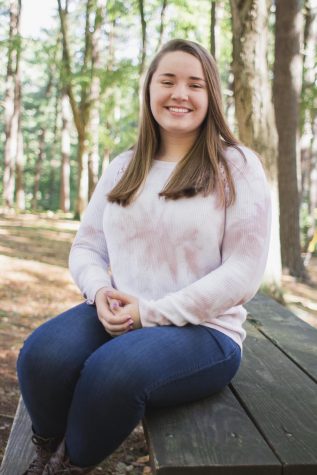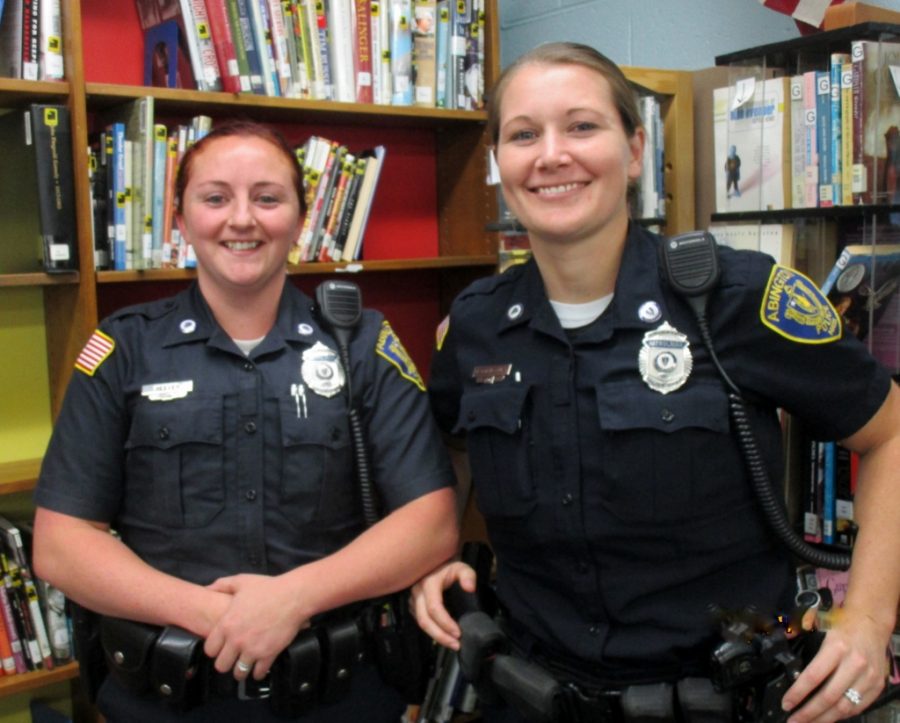School Resource Officers Are Here to Help
And prevent problems before they occur
School Resource Officers Shannon Reeves and Michelle Bettencourt
Abington has followed in the footsteps of all other surrounding towns by obtaining a state grant to have two police officers present in the school system for the next three years. Michelle Bettencourt and Shannon Reeves, both Abington High Alumna (Class of 2006), are our school resource officers. They have actually known each other since they were five-years-old, when they were known as Michelle Franey and Shannon Bray.
Officer Bettencourt graduated from American International College in Springfield. Her uncle, Richard Franey, was the police chief in Abington until he retired in 2004, and she aspired to be like him ever since he spoke at her school about his job when she was younger.
Officer Reeves graduated from Suffolk University and has always loved the idea and image behind being a police officer.
In the schools, the officers’ main priority is ensuring that all students and faculty are safe. However, they are also here to build positive relationships with the youth in Abington. “The media has definitely taken a negative approach on police, and we want to prevent that because we are here to help everybody. Our job is to help,” said Reeves.
The officers are here to build rapport with students. They hope to “work with the school and come up with different solutions to solve issues,” said Bettencourt. The officers hope to prevent making arrests and pressing charges, and instead want to work closely with students and parents to find better solutions for problems like bullying.
Reeves and Bettencourt work in all of the public schools in Abington, and their relationship with students varies. According to the officers, the younger kids love to see them and think they are “superheroes.” Officer Reeves finds the Frolio Middle School to be the most difficult as “some of them love us because they’re on the younger side, but some of them are a little harder to get through to.”
The high school has been the biggest challenge because students here take a longer time to feel comfortable and trust them. However, both officers agree that this is a fun challenge. Officer Bettencourt said, “when you start to build rapport with the students, they start to say “Hi” (when you see them) or they start to give tips” as to who may need help; this makes the challenge of breaking through to the high schoolers a tough but rewarding one.
High schoolers often think the officers are here to “do them wrong.” Reeves and Bettencourt strongly disagree with this belief and want to stress that they are here to offer resources and help anyone in need. Problems like suicide, drugs, alcohol or domestic problems, are all issues they are able to assist with. The resource officers want to be seen as friends not enemies.
Reeves and Bettencourt are hoping to implement several programs in the schools over the next few years. One of their major focuses is the D.A.R.E. (Drug Abuse Resistance Education) program. Along with these educational programs, they also plan to educate the youth about laws and things they could get in trouble for. Many students are unaware of these offenses. Educating students when they are young will hopefully reduce the likelihood they will get in trouble later on. Reflecting on their work in the schools thus far Officer Bettencourt said, “This is actually the fun part of being a police officer, doing stuff like this, because you get to work with the kids.”

Allison is a member of the Class of 2018. She is also a member of the Math Team and Peer Leaders at AHS, as well as the president of the Abington Chapter...


Susan Crowley • Nov 11, 2016 at 12:10 PM
This was a well written article. We are lucky to have such great resource officers.